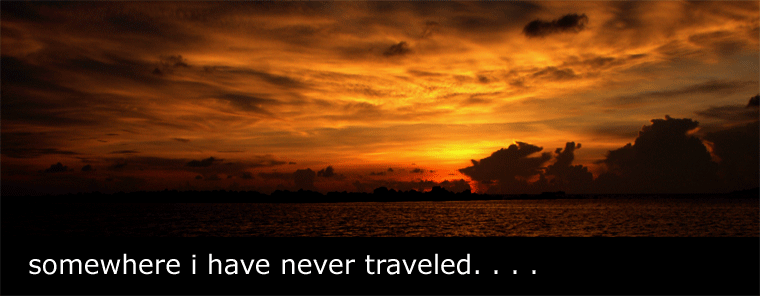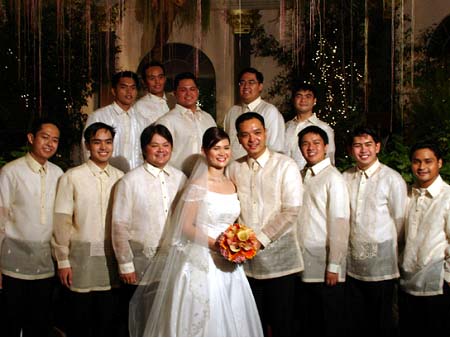If one wishes to understand the history and character of the Ateneo de Manila from its beginnings in 1859 as the Ateneo Municipal to the present Ateneo at Loyola Heights, one will inadvertently stumble upon the broad white sheets of Horacio dela Costa’s epic account of the Jesuits in the Philippines, aptly entitled, Light Cavalry. In this book, dela Costa writes about the Ateneo as it was, many, many years ago, when it was first behind the moss-covered walls of Intramuros, along Calle Anda, and then later on, at the Quonset huts of Padre Faura, before the outbreak of the Second World War. This was the Ateneo of José Rizal and Antonio Luna, the same Ateneo that would later give us a Raul Manglapus and a Leon Ma. Guerrero, a Roque Ferriols and a Catalino Arévalo. This was the Ateneo of myth and legend.
From these stories of days gone by, one gets a taste of what it is to be an Atenean— to be imbued with that special fire of sapientia et eloquentia that has been handed down from generation to generation. It is an Ateneo that, as dela Costa himself writes, “stands aloof from the hurry of the world, its precipitate flux, its mutability. It does not worry too much about being fashionable, because it knows that it has something to impart which is far better than what is merely new— something, in fact, which will always be newer than what is merely new—something, in short, that cannot die.” Dela Costa, of course, was pertaining to the Faith, for sure. But he was also pertaining to the Classics. And then, also, to Philosophy. Thus, dela Costa’s Ateneo gave its students a steady diet of Theology, Philosophy, and the Classics. Through such holistic, liberal education, the Ateneo then hoped to produce persons of conscience and competence, contemplation and action; in a word, whole persons.
It therefore becomes apparent that Literature (the Classics, most especially)— and, by extension, the Humanities— have also played a traditional role in the formation of the Atenean. Dela Costa himself describes bouts with Caesar’s Gaellic War that needed to be translated into English from the original Latin (Gallia est omnis divisa in partes tres); the analysis and imitation of paragraphs by Chesterton (The Bible tells us to love our neighbors, and also to love our enemies; probably because they are generally the same people); and the reading of poetry by Hopkins (As kingfishers catch fire dragonflies/ draw flame). It was hoped that through these exercises, the Atenean would gain an appreciation and understanding of humanity, of his joys and his fears, his terrors and his triumphs. In the end, this liberal education aimed at exposing the Atenean to what is beautiful and noble in human culture so that he would somehow be able to find a template, a pattern, against which he may fit his own life; no doubt, to attain Plato’s much-vaunted “examined life.”
Looking now at the present Ateneo, however, it would seem that Literature has taken a back seat to the more practical sciences of Accounting and Management, to name only a few. Gone is the rigor by which Literature had been pursued, and in its place, emerged a pale palliative of didactic frustration on the part of teachers, and passive, confused assent on the part of students. Indeed, in a University that once prided itself with the speaking of “Arrrneow” English, students no longer know Shakespeare, Dickens, Housman, or Eliot. And they are not the least bit bothered by it. In light of these facts, one cannot but lament the death of Literature, or at least, the literary tradition that dela Costa had known, the same one that formed Rizals, Manglapuses, Ferriolses and Arévalos.
We have, as Ateneans, lost a sense of the literary, simply because we live in a non-reading culture. With the rise of even more television, the Internet, and globalization, society itself has shifted its paradigms, exchanging the priority of humanitas to the more temporal search for the quaestus, prompting the American educator Theodore Hesburgh to question the future of liberal education, “especially in our day when the most popular course on [the] college campus [is] not literature or history, but accouting.”
I believe that the future of liberal education lies first and foremost in the recognition that it is, before anything else, an ideology (to borrow from Eagleton’s The Rise of English); it is an integrative center upon which to build the core of the truly human person. Literature, alongside Theology, Philosophy, History, and the Modern Languages, serves as a means to promote that one single classical end of humanitas— of forming the Atenean into a fully human person, in the same mold, perhaps, as the Ateneo of Intramuros or Padre Faura.
Because of the changes in paradigm and outlook, however, this end of humanitas is now much more nuanced; it is, in fact, made more imperative due to the popularity of the practical, albeit clinical (and perhaps, passionless) disciplines. Aside from being one of the normative standards of humanity as it had been in the past, Literature therefore serves the added purpose of being a critical counter-culture to the rise of Management and the Sciences, with their ideologies of profit and objectivity. Not that these endeavors are harmful in themselves; but by tempering the tendencies to objectify and categorize the world, Literature reminds students that “feeling is first”, allowing students alternative and complementary endeavors which invite them to approach life with the objectivity and linearity of Mathematics, yes, but also with the wonder and discovery of Literature and Philosophy. The purpose, then, is to give him the facility to answer the what's and the how’s, but also to have the courage and awareness to ask the why’s and the what-for’s; seeking, in the end, hopefully, “the last and greatest of all human dreams.”
In addition, Literature now serves the added purpose of complementing and bridging the sometimes-disparate world of Philosophy and Theology, no the one hand, and Management and the Sciences, on the other. It is the middle ground upon which these seemingly opposing disciplines meet. It is therefore not surprising to use Dickens’ “It was the best of times, it was the worst of times” in The Tale of Two Cities as a preface to an understanding of Classical Economics; or Alyosha’s lament following the death of his teacher Zosima in Doestoyevsky’s The Brother’s Karamazov to find its way into a discussion of the Philosophy of Religion; or even to use Dilsey and Benjy in Faulkner’s The Sound and the Fury as a template of God’s liberating love. Indeed, Literature at the Ateneo serves the purpose of bridging the theoretical gaps left by Theology, Philosophy, Management and the Sciences, making them more felt and fruitful by putting a more human face to Faith and Reason.
Finally, Literature at the Ateneo not only bridges the gap left by Philosophy, Theology and the Sciences, but also crosses the chasm created by social classes and cultures. Literature, in a very real sense, is a means by which the Atenean today is able to widen his or her horizons, allowing a better understanding of the world beyond his limited situation. It is knowing life vicariously through the transportive power of the written world, introducing him to the barricades of Hugo’s France, to the safaris of Hemingway’s Kilimanjaro, to the magic of Marquez’s South America, to the hidden caverns of cumming’s human heart. The world is open to the Atenean, perhaps not in the structured, academic manner of the old “learn’d by rote” Literature, but in a wide, genre-spanning totality of its curriculum.
The tragedy, though, is that all these opportunities are still largely left unrealized.
No doubt, Literature’s role at the Ateneo has not changed. Its role continues to be the formation of the truly human person, in the mold of sapientia et eloquentia. But many things have changed besides, and as the Ateneo had to squarely face the dawn of the next millennium, Literature, in a desire to remain effective and relevant, also found the need to change along with the times, necessitating— together with the primary aim of humanitas— the added role of critic, complement, and bridge. It had to relax old practices and revise tested beliefs— exchanging rigor for practical co-existence.
Reflecting on these roles, then, Literature at the Ateneo appears to be falling short of these aspirations. Literature to many, remains but another necessary page in the canon of requirements for the semester. Many, in fact, do not have an appreciation for the power of the written word. Gone, therefore, is the coveted contact with the immense treasure trove of significant human experience handed down fro the Greeks, the Latins, at the great writers and poets.
Certainly, nostalgia for the old Ateneo is easy in the face of this disillusionment. And in a way, this nostalgia is understandable. For indeed, with the falling of the Latin and Classical paradigm, “then I, and you, and all of us fell down”: surely, we had decidedly all lost something. Yet perhaps, in this new age, this “new” Ateneo of globalization, with its Sciences and Management may find its own new breed of Rizals, Manglapuses, Farrioles and Arévalos, who, while certainly less conversant in Cicero and Shakespeare, will be no less imbued with humanitas, sapientia et eloquentia. Indeed, only time will tell.





